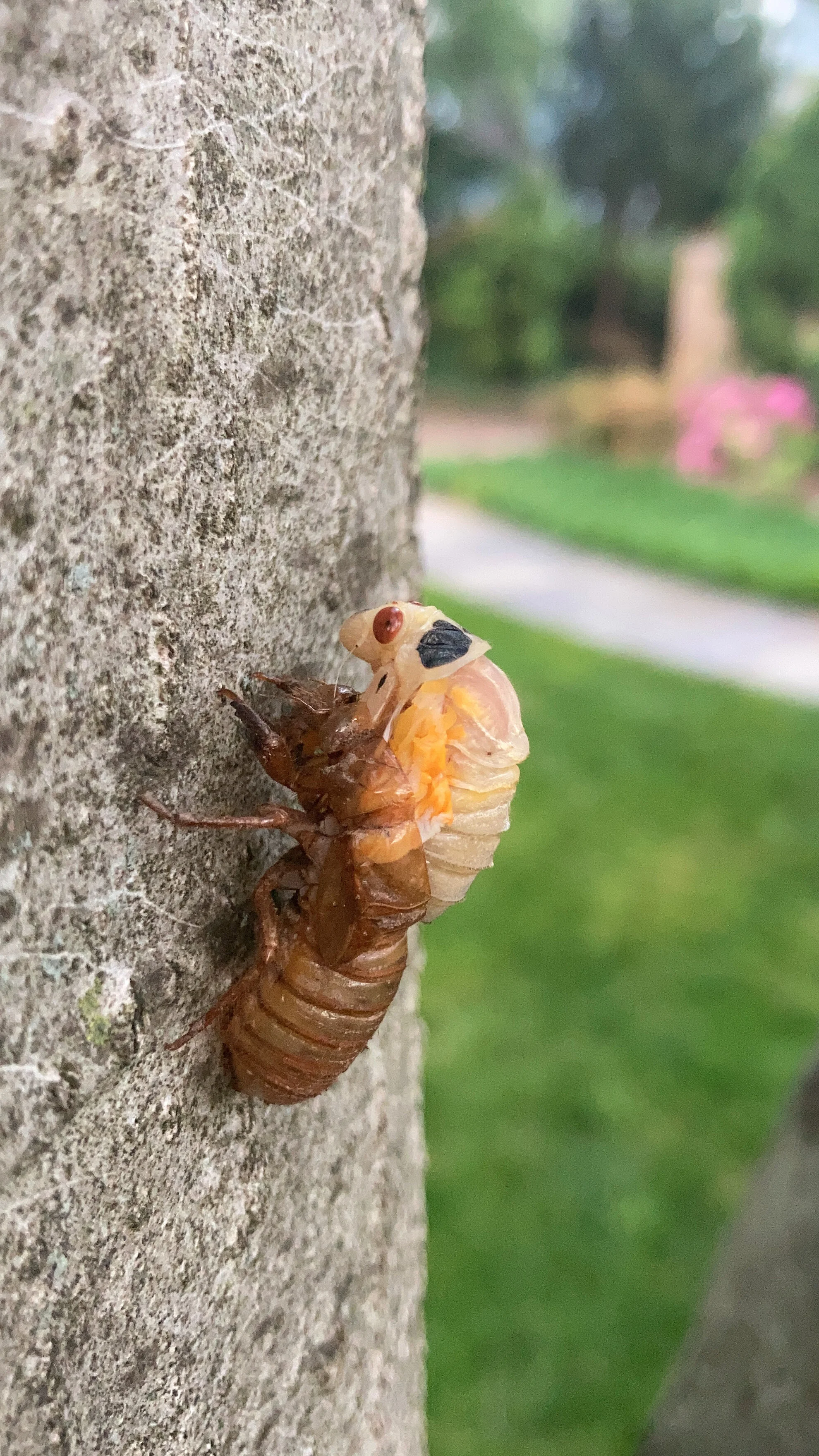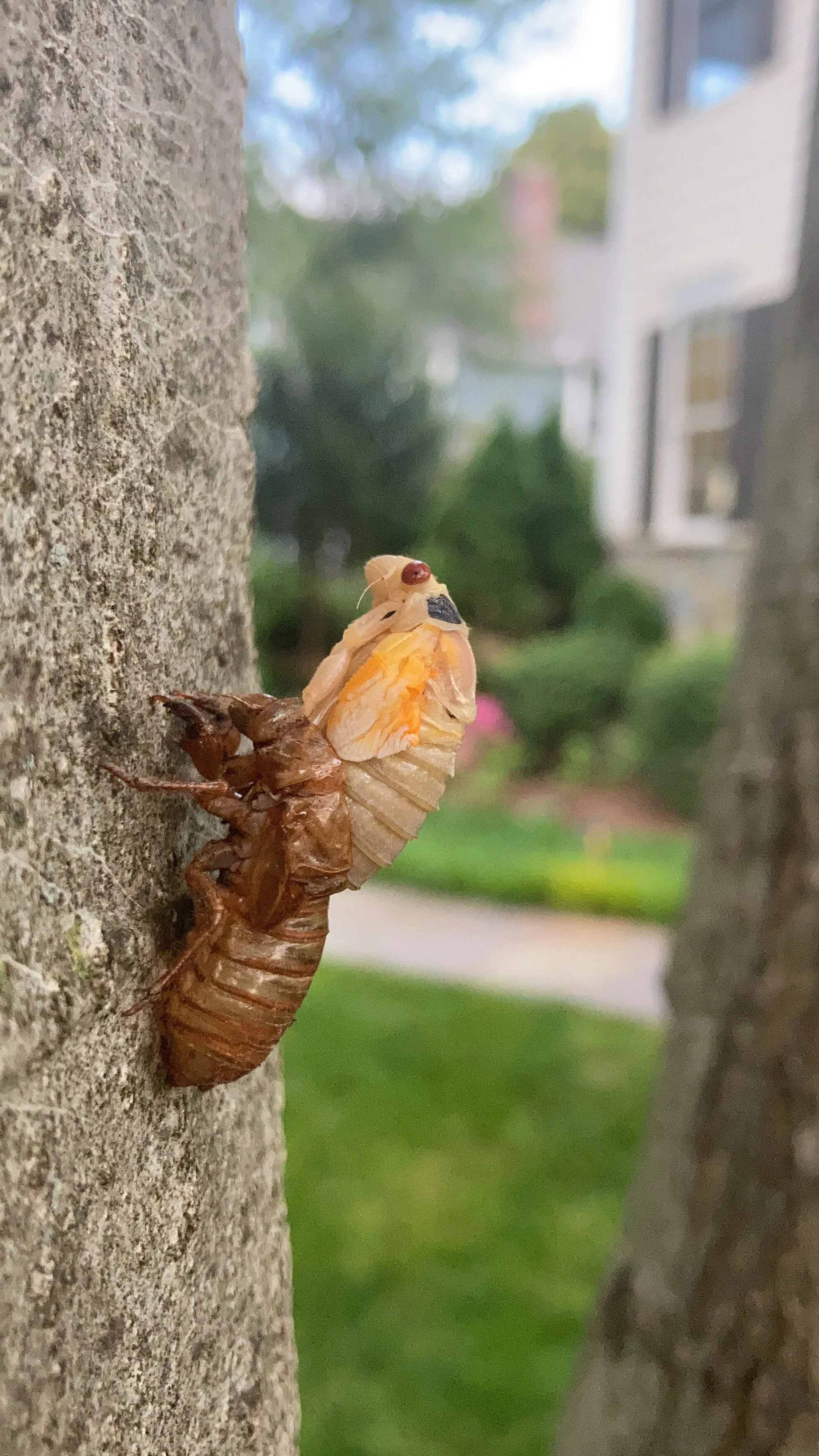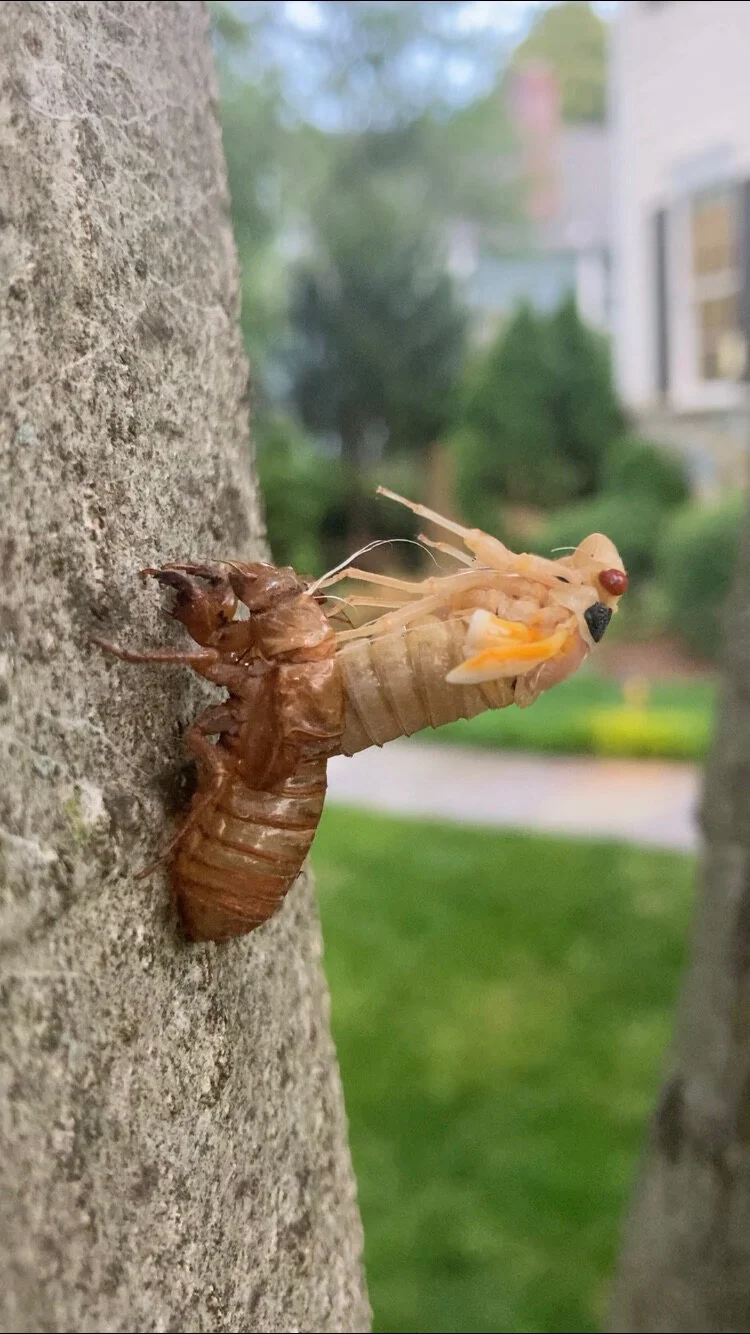Birds and cicadas
/Several weeks ago, a neighbor wrote to our listserv asking if anyone else had dead black birds in their yard or noticed them around the neighborhood. She had two dead birds, one of which seemed to drop out of the sky; it crashed onto her balcony.
Other neighbors responded during the following days. They, too, were coming across dead birds, all black and rather large- like grackles or blackbirds.
Concurrently, the patient cicadas of BroodX started to surface. I began to see trees wrapped like mummies in fine-mesh netting but didn’t think more of it. Oliver has been very excited about the brood’s emergence, and through his eyes I saw the magic of these little creatures. One evening, he sat statue-still in a tree for nearly 45 minutes, quietly filming a cicada molt. His science teacher has talked quite a bit about BroodX, and Ol knew more about them than I did, again opening my eyes to a deeper magic and awareness of the theatre of the natural world all around us.
Not everyone is so sanguine about the cicadas though. I don’t love when they land and walk on my body, but I’m certainly not going to hurt them. They are so gentle and appear to be both incredibly earnest and kinda dumb. When you pick them up, to remove them from your body or out of a dangerous spot on the sidewalk, say, they make the funniest sound. It sounds like distress or frustration, and I cluck comfortingly until I manage to put each one as high as possible. Oliver says their goal is to go way, way up in trees so they can more safely lay eggs. Anyway, I tend to anthropomorphize the crap out of animals, so who really knows what their little grunts mean, but I like them.
Several days ago, as I was leaving to get Ol from school, a blackbird flew into an exterior wall of our house and fell into the window bay below. I didn’t have time to stop, but as soon as we got home, I told Jack to get a box and a towel and Ol to get a small bowl of water, while I donned gloves and lowered myself into the window well. The poor bird had crusty eyes and looked frantic. I spoke softly and gently clutched him in my gloved hands, managed to get out of the well, and placed him in the box. Before we could close it, he took flight and weaved drunkenly across the street. We saw him fly into a tree and drop several feet, and I doubt he was long for the world.
Today in the Washington Post, this article discussed the recent spate of bird deaths and blindness -the premise is a mysterious neurological illness striking them [an earlier article suggested West Nile via mosquito, but recent tests have come back negative]. Some have hypothesized that they are falling ill, going blind, and dying because of all the pesticides people are putting out to kill the cicadas. No one knows yet, but it’s concerning and sad.
The number of dead and dying cicadas alone has been tough enough to bear; I’ve been surprised by how sorry I feel about how many don’t make it. It’s like their entire evolutionary plan is mass numbers and instinct, neither of which seems terribly hopeful. Why do we need to kill them all? They’re an ephemeral presence, and they sing all day. Yes, it’s loud at times, but consider it white noise.
Little cicada corpses are everywhere, and now birds are going blind and falling out of the sky, and honestly, after 16 months of mass dying and suffering from Covid, I’m both weary and discomfited. Parts of the world are in severe drought; others are flooding; some are melting; others are starving. The planet is telling us something. I hope more people start to listen.










